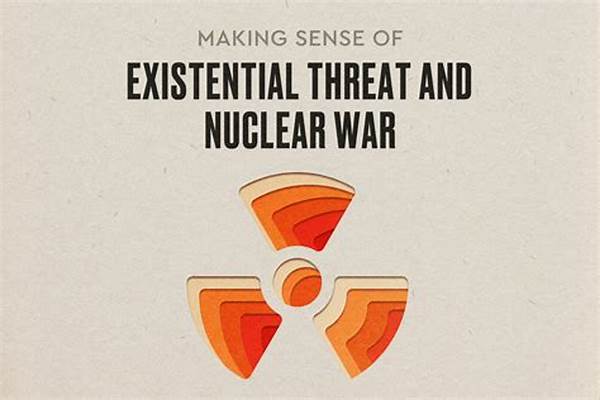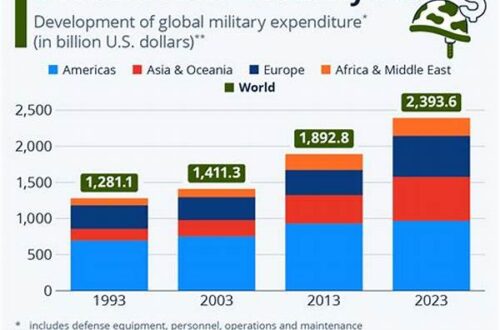The interplay between international relations and nuclear threats remains a pivotal aspect of global security dynamics in the 21st century. As nations strive to maintain sovereignty while fostering diplomatic ties, the multifaceted challenges posed by nuclear proliferation and deterrence strategies demand a comprehensive understanding. Historical events have underscored the criticality of peace and collaboration in navigating the complexities of nuclear capabilities and geopolitical tensions.
Nuclear Proliferation and Global Diplomacy
The escalation of nuclear threats has necessitated a robust framework of international relations to mitigate potential conflicts. Countries are compelled to engage in treaties and negotiations to curtail nuclear arms races and promote disarmament. The Nuclear Non-Proliferation Treaty (NPT) serves as a cornerstone in this endeavor, emphasizing the need for cooperation among nuclear and non-nuclear states alike. Despite these efforts, the persistence of nuclear threats, fueled by technological advancements and geopolitical ambitions, continues to pose significant challenges. Consequently, international relations must adapt to evolving security landscapes, ensuring dialogue and diplomacy remain at the forefront of conflict resolution. Economies are interlinked by the shared goal of avoiding catastrophic outcomes, necessitating a relentless commitment to constructive engagement and effective communication.
Strategic Stability and Power Dynamics
1. Strategic stability is a paramount concern in international relations, especially in the context of nuclear threats.
2. The balance of power theory remains relevant as nations jockey for influence, with nuclear capabilities as a deterrent factor.
3. Modern-day diplomacy necessitates a nuanced understanding of regional tensions and nuclear threat implications.
4. The role of international organizations is critical in bridging dialogue and fostering cooperative agreements on nuclear disarmament.
5. Trust-building measures and transparency are essential in alleviating mutual suspicions among nuclear-capable states.
Historical Context and Nuclear Diplomacy
The history of nuclear diplomacy is intrinsically linked to the evolution of international relations. In the Cold War era, the specter of nuclear threats defined the geopolitical landscape, prompting the establishment of various treaties aimed at curbing arms proliferation. The delicate balance of power between the United States and the Soviet Union shaped decades of diplomatic engagements. With the end of the Cold War, new challenges emerged as other nations sought to assert their nuclear capabilities, further complicating global diplomatic efforts. These historical precedents continue to inform contemporary strategies in international relations, highlighting the necessity of adaptability in the face of enduring nuclear threats.
In today’s interconnected world, the lessons gleaned from the past underscore the importance of multilateral engagement and innovative policy approaches. By fostering channels of communication and prioritizing mutual understanding, states can work collaboratively to safeguard against the perils of nuclear escalation. The intricate relationship between international relations and nuclear threats requires a steadfast commitment to dialogue, ensuring a stable and secure future for all nations.
The Role of International Institutions
International institutions play a pivotal role in addressing the complexities of nuclear threats within the framework of international relations. These organizations facilitate dialogue and provide platforms for negotiation, promoting nuclear non-proliferation and disarmament efforts. United Nations agencies, such as the International Atomic Energy Agency (IAEA), are instrumental in monitoring compliance with treaties and assisting countries in developing peaceful nuclear technology. The efficacy of these institutions is often contingent upon the collective will of member states to address pressing nuclear concerns and uphold global security standards. Such collaborative efforts underscore the integral link between international institutions and the overarching goal of mitigating nuclear threats.
Economic Implications of Nuclear Threats
The economic implications of nuclear threats are profound, affecting global markets and national economies. The mere possibility of nuclear conflict heightens geopolitical risks, influencing investor confidence and causing fluctuations in financial markets. Countries heavily invest in defense expenditures, diverting resources from socioeconomic development to address perceived nuclear threats. The potential for humanitarian and infrastructural devastation, inherent in nuclear conflicts, further exacerbates economic instability. Therefore, international relations strategies aimed at reducing nuclear threats can significantly enhance global economic resilience, fostering an environment conducive to sustainable growth and development.
Technological Advancements and Security Dilemmas
Technological advancements present both opportunities and challenges in the realm of international relations and nuclear threats. Innovations in missile defense systems and intelligence capabilities have reshaped strategic paradigms, prompting nations to reassess their security policies. The proliferation of cyber capabilities introduces new dimensions to nuclear threats, necessitating comprehensive cybersecurity measures. In this rapidly evolving landscape, international cooperation is indispensable in addressing security dilemmas. The convergence of technology and international relations underscores the need for adaptive policy frameworks, ensuring global peace and security amidst evolving nuclear threats.
Summary
In summary, the intricate relationship between international relations and nuclear threats demands proactive and collaborative approaches to ensure global security. The historical context of nuclear diplomacy highlights the evolution of strategies aimed at deterring conflicts and managing power dynamics. With the looming specter of nuclear escalation, nations must prioritize dialogue, transparency, and trust-building to mitigate associated risks. International institutions play a critical role in facilitating cooperation and promoting disarmament initiatives, underscoring their importance in the global security apparatus.
Ultimately, addressing nuclear threats within the framework of international relations requires a holistic perspective, encompassing technological advancements, economic implications, and geopolitical considerations. By fostering understanding and cooperation, the global community can navigate the complexities of nuclear threats, striving towards a future characterized by peace and prosperity.





